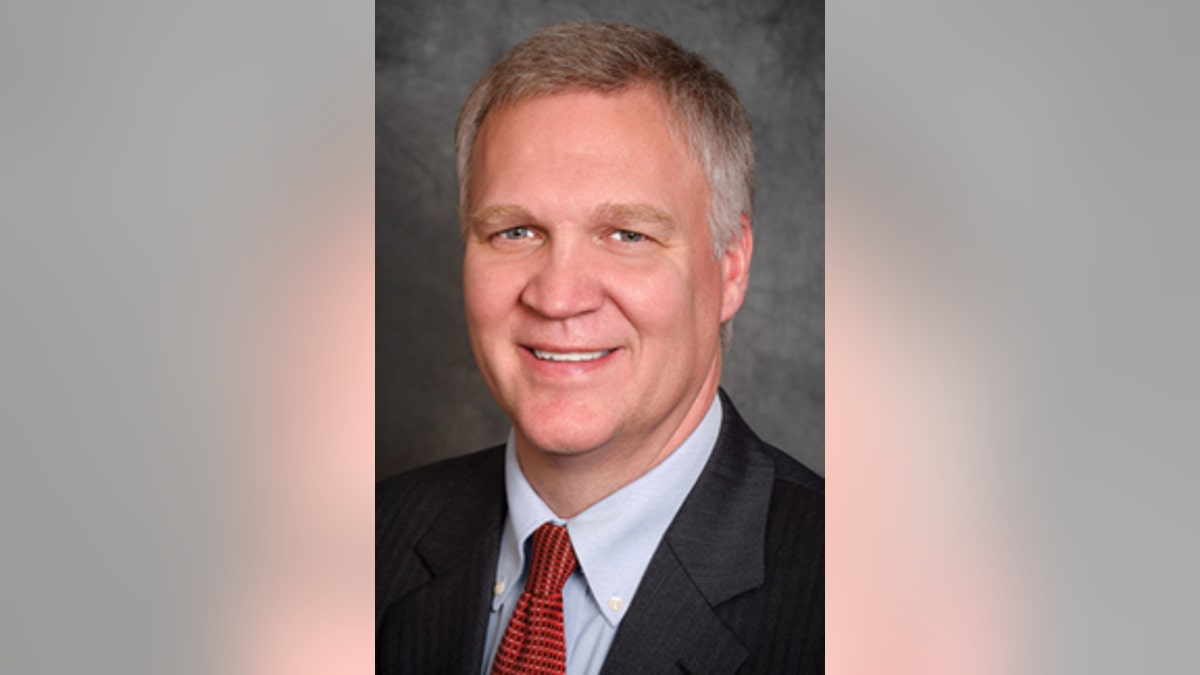
Tim Armstead resigned Tuesday as West Virginia's House speaker and announced plans to run for a state Supreme Court seat.
West Virginia's Republican House speaker said Tuesday that he has resigned in order to run for a seat on the state’s Supreme Court.
Speaker Tim Armstead made his intentions known via Twitter messages.
“I am looking forward to talking with my fellow West Virginians and working to earn their trust and votes to serve as their Supreme Court Justice,” Armstead wrote in one message.
Though the secretary of state's office has said Armstead is not required to resign, he said he was doing so to make sure his candidacy is above question.
The move fueled accusations by state Democrats that an earlier effort to impeach several state Supreme Court justices represents a power grab by GOP lawmakers.
House lawmakers recently impeached four of the court's five justices, prompting one to resign. All four were ordered Tuesday to appear in the Senate on Sept. 11 to answer accusations against them.

Robin Davis, second from right, stepped down from West Virginia's state Supreme Court on Aug. 14 after lawmakers voted to impeach her and justices Margaret Workman, left, Allen Loughry, second from left, and Beth Walker, right.
The impeachment probe was sparked by questions involving more than $3 million in renovations to the justices' offices and expanded to broader accusations of corruption, incompetence and neglect of duty.
Armstead had recused himself from the House debate over impeachment because he had previously expressed interest in serving on the court.
More recently, he and U.S. Rep. Evan Jenkins, a Republican who is not seeking re-election and lost in his bid for the U.S. Senate this spring, both applied to be considered for temporary appointments to the Supreme Court by Gov. Jim Justice.
Those appointments would last until the November election is certified.
Jenkins has declared himself a candidate for a different seat on the court in the November election, which is officially nonpartisan.
The West Virginia Democratic Party said on Twitter of Armstead's resignation, "No surprise here, more self-serving moves for political gain and abandoning the people of West Virginia in his district."
In a statement announcing his resignation, Armstead said he intends "to spend as much time as possible meeting West Virginians and earning their trust and their votes to represent them on their Supreme Court of Appeals."
Armstead filed by Tuesday's deadline to run in the nonpartisan race for the vacancy created last month when Menis Ketchum retired and agreed to plead guilty to wire fraud related to his personal use of a state vehicle and fuel.
Robin Davis stepped down from the court Aug. 14 after lawmakers voted to impeach her and justices Allen Loughry, Margaret Workman and Beth Walker.
Davis and at least one Democratic lawmaker have accused the Republican-led legislature of turning what they said was a legitimate pursuit of charges against Loughry into a blatant attempt to take over the court.
Democratic Delegate Barbara Evans Fleischauer of Monongalia County has called impeaching the other justices "a power grab ... and using the impeachment process to take over another branch of government."
Jenkins and six other candidates have filed to run for Davis' seat in November. Armstead and nine other candidates have filed to run for the seat Ketchum vacated.
Loughry faces six charges related to accusations of spending $363,000 on office renovations, taking home a $42,000 antique desk owned by the state, and lying to a House committee.
Loughry, Walker and Workman all face charges of abusing authority by failing to control office expenses and not maintaining policies about the use of state vehicles, office computers at home and other matters.
Workman faces two separate impeachment articles related to accusations that she allowed senior status judges to be paid higher wages than are allowed.
Armstead was appointed to a House seat from Kanawha County in 1998 to fill a vacancy and was elected later that year. He served as House minority leader and was named speaker in December 2014 after Republicans gained majority control of both the House and Senate for the first time in eight decades.
Some Democrats have said the impeachments were strategically timed by majority Republican lawmakers to allow the governor to name their temporary replacements.
"There's never been any time in history where one branch of government supposedly controls another branch," Senate Democratic leader Roman Prezioso said Monday. "And for the governor to be able to appoint people to be replaced, obviously there's that apprehension by a lot of the Democratic senators and House members, too.
The Associated Press contributed to this story.











































